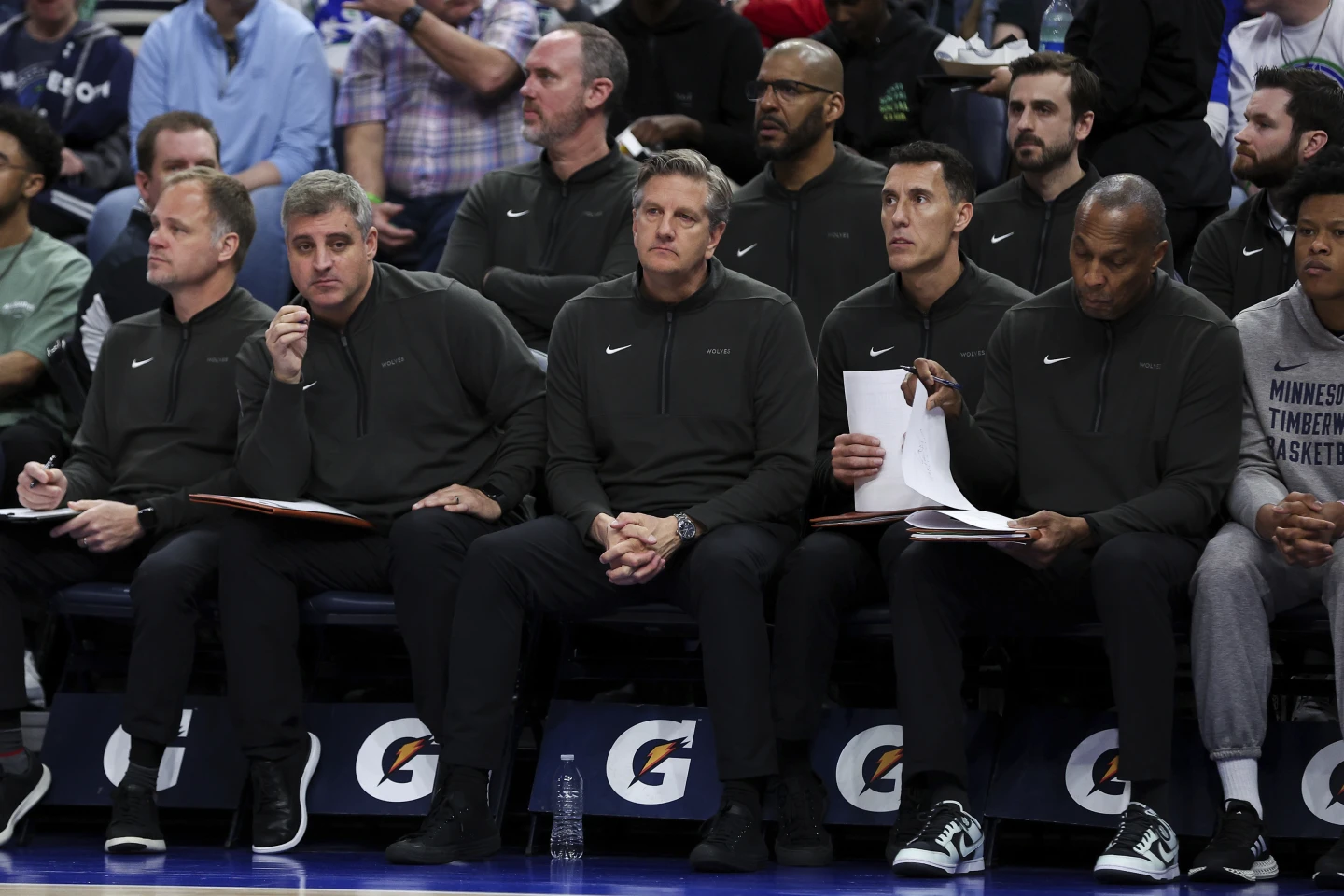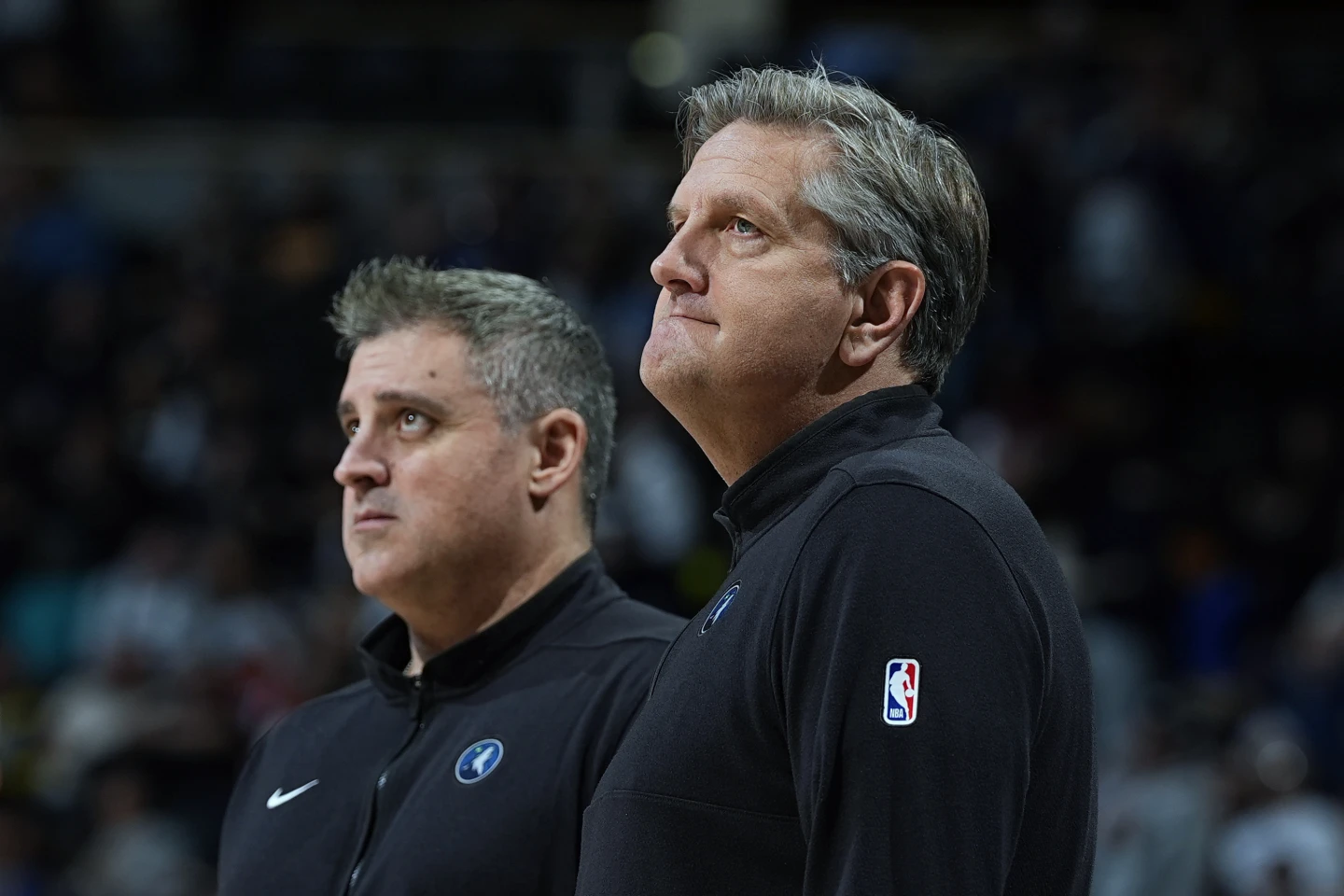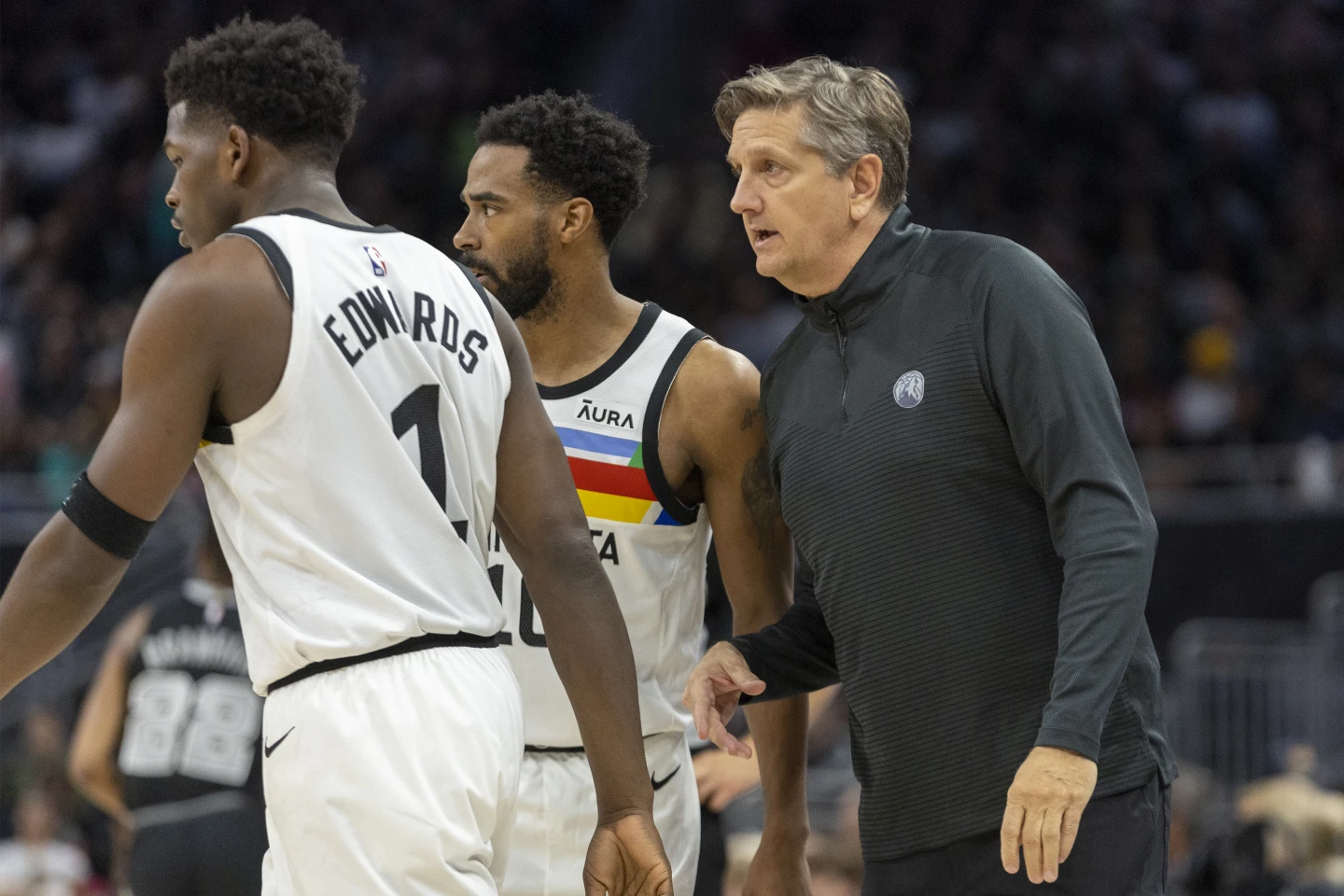As the clock ticks down to the pregame warmup, the hallway leading to the Target Center floor fills with the spirited sounds of team unity and motivation.
The Minnesota Timberwolves gather for a brief burst of cheers, shoulder taps, and hand slaps, channeling high school camaraderie before stepping onto the court together.
Surprisingly, it’s the coaches, not the players, who orchestrate this energetic pregame routine. “Getting revved up!” remarked 64-year-old assistant coach Elston Turner with a wry smile as he reflected on the ritual during a recent practice session.
With the coaching staff positioned on both sides, head coach Chris Finch calmly walks through the tunnel, exchanging fist bumps while the other assistants unleash their energy.
Former quality control coach Nathan Bubes, now with the G League affiliate in Iowa, originally led the lively procession. Following Finch with encouragement, Bubes would prompt friendly but firm smacks from his colleagues.
His successor, Jeff Newton, has taken the role to new heights with enthusiastic body bumps for the other assistants.
“It provides a moment of lightness, while also getting everyone pumped up,” explained assistant coach Micah Nori. “We eagerly anticipate it.”

This well-organized team of coaches has been a valuable addition to a 35-year-old franchise that hasn’t had many bright spots. It’s just one of the many strengths the Timberwolves bring to the NBA playoffs this spring, entering as the No. 3 seed in the Western Conference.
Coach Finch is being considered for the Coach of the Year award after leading the Timberwolves to a 56-26 record, the second-best in club history.
“They’ve been really specific about what we need to do to achieve our goals,” said veteran point guard Mike Conley. “They lay it all out for us, and we all understand our roles.”
Minnesota kicks off its playoff journey by hosting Phoenix on Saturday in Game 1 of the best-of-seven first-round series.
“We all know what we need to do. What I like is how responsibilities are divided. Sometimes we sit in a meeting with 15 people. I mean, come on,” said Turner, who previously worked with Finch in Houston.
“Everyone has a job to do. We discuss it like a football huddle, then we break out and everyone plays their part. Finch doesn’t micromanage. He hired us for a reason, and he trusts us to do our jobs.”
The Suns, led by superstars Devin Booker and Kevin Durant, along with prolific scorer Bradley Beal, prefer to play small and rely on their shooters. They won all three regular-season matchups against the Timberwolves, holding a double-digit lead for the entire second half each time, including last Sunday.
With six days to prepare, Finch’s team has been hard at work this week. “It’s a lot of fun. It’s like a coach’s dream. You get to analyze every aspect,” said Finch. “It feels like preparing for a football game.”
Nori plays a role similar to a bench coach in baseball, being Finch’s trusted advisor who helps maintain a positive atmosphere and keeps things running smoothly. Turner is in charge of defensive strategies, while Prigioni serves as the offensive coordinator, guiding Finch’s fluid system.

The coaching staff also includes Hanson, Williamson, Boylan, and others. “The team chemistry among the staff is excellent. At halftime, I often don’t need to speak much to the defensive guys. They already know what to do. We’ve discussed things enough during the game.
They’re prepared and ready to go,” said Finch. “During practice, everyone focuses on their specific areas. I have complete trust in everything they do, and so do the players. It’s one of the best and most efficient coaching staffs I’ve ever worked with, which speaks volumes about their abilities.”
Nori, who previously worked with Finch in Denver, has noticed a refreshing lack of paranoia that can sometimes be found in front offices and coaching staffs in the league.
“Finch understands people well. He’s not afraid to tell the truth, even if it’s difficult. He’s fair,” Nori explained. “On some teams, if a star player makes a mistake, the coach might indirectly criticize another player, hoping the star gets the message.
But Finch addresses issues directly, and the players respect it. They know it’s coaching, not just criticism.”
